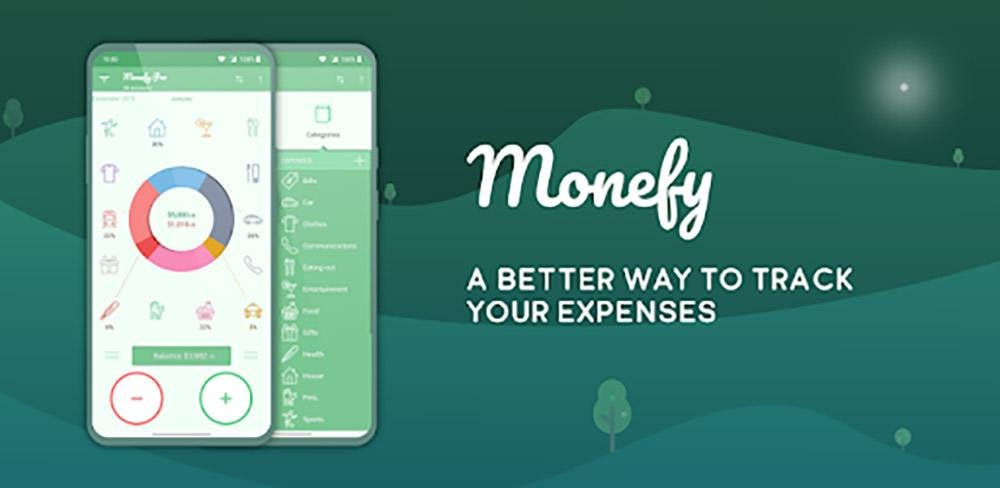
Best Free Personal Finance App: Manage Your Money Wisely
In today’s fast-paced world, managing your finances effectively is more important than ever. As we juggle between various expenses, savings, and investments, having a reliable tool can make all the difference. In this article, we will explore the best free personal finance apps available, their features, benefits, and how they can help you take control of your financial life.
Why Use a Personal Finance App?
With countless free personal finance apps available, you may wonder if they’re worth your time. Here are some compelling reasons:
-
- Budgeting Made Easy: A personal finance app allows you to set budgets, track spending, and gain insights into your financial habits.
-
- Expense Tracking: These apps help you monitor your transactions automatically, ensuring no expenses go unnoticed.
-
- Goal Setting: Many apps provide tools to help you set saving goals, whether for a vacation, emergency fund, or large purchase.
-
- Financial Planning: Advanced features can assist in planning your investments, retirement, and even loans.
Key Features to Look for in a Free Personal Finance App
When selecting the best free personal finance app, consider these essential features:
-
- User-Friendly Interface: A clean and intuitive design enhances user experience.
-
- Real-Time Syncing: Ensure your transactions sync automatically for accurate financial insights.
-
- Multiple Account Management: Look for apps that allow you to link different bank accounts and financial institutions.
-
- Goal Tracking: The ability to set and track financial goals is crucial for long-term planning.
-
- Robust Security: Ensure the app employs strong encryption methods to protect your financial data.
Top Free Personal Finance Apps of 2023
1. Mint
Mint is one of the most popular free personal finance apps available. It offers comprehensive features for budgeting, expense tracking, credit score monitoring, and more.
Key Features:
-
- Automated transaction categorization
-
- Custom budget creation
-
- Alerts for bill payments and unusual spending
-
- Free credit score access
2. Personal Capital
Personal Capital provides a unique blend of personal finance management and investment tracking. It’s an excellent choice for users looking to manage investments alongside their budget.
Key Features:
-
- Net worth tracking
-
- Retirement planning tools
-
- Investment portfolio analysis
-
- Income and spending tracking
3. PocketGuard
PocketGuard is designed to simplify budgeting by showing you how much money you have left after accounting for bills, goals, and necessities.
Key Features:
-
- Automatic categorization of expenses
-
- Bill tracking
-
- Custom savings goals
-
- Privacy-focused features
4. YNAB (You Need A Budget)
YNAB takes a proactive approach to budgeting, helping users allocate every dollar toward a specific purpose. It does come with a subscription fee, but they offer a free trial for new users.
Key Features:
-
- Proactive budgeting principles
-
- Goal setting and tracking
-
- Easy-to-use mobile interface
-
- Live workshops for users
5. GoodBudget
GoodBudget is a modern take on the envelope budgeting system that allows users to allocate funds for different categories using virtual envelopes.
Key Features:
-
- Customizable envelopes for various expenses
-
- Tracking of account balances
-
- Sync across devices
-
- Budget reports and insights
Benefits of Using Personal Finance Apps
The transition to a digital money management tool can yield significant benefits:
-
- Time-Saving: Automating transaction entries and budgeting can save hours spent on manual tracking.
-
- Better Financial Insights: Analytics and reports provide a deeper understanding of spending habits.
-
- Accessibility: Manage your finances anywhere, anytime with mobile access.
-
- Increased Accountability: Visualizing your spending can reinforce good habits and accountability.
Practical Tips for Using Personal Finance Apps Effectively
Here are some practical tips to make the most of your chosen personal finance app:
-
- Regularly Update Your Transactions: Make it a habit to categorize transactions daily or weekly.
-
- Set Realistic Budgets: Allocate funds based on your actual needs and spending habits.
-
- Review Your Financial Health: Regularly check in on your progress toward financial goals.
-
- Utilize Alerts: Set up alerts for bill payments, budget limits, and unusual spending.
Firsthand Experience: A Case Study
When Sarah, a 28-year-old professional, decided to take control of her finances, she turned to Mint. Within the first month, she identified unnecessary subscriptions and adjusted her spending habits significantly. By the end of the second month, she had saved $300 by simply being more aware of her financial situation. The intuitive interface and real-time updates made it easy for her to stay on track with her goals of saving for a vacation and paying down student loans.
Conclusion
Choosing the best free personal finance app can transform the way you manage your money, elevate your budgeting skills, and help you achieve your financial goals. Whether you prioritize expense tracking, budgeting, or investment management, there’s a perfect app out there for you. Consider your specific needs, explore the apps mentioned, and start your journey to financial wellness today. Remember, taking control of your finances is just a download away!
“`